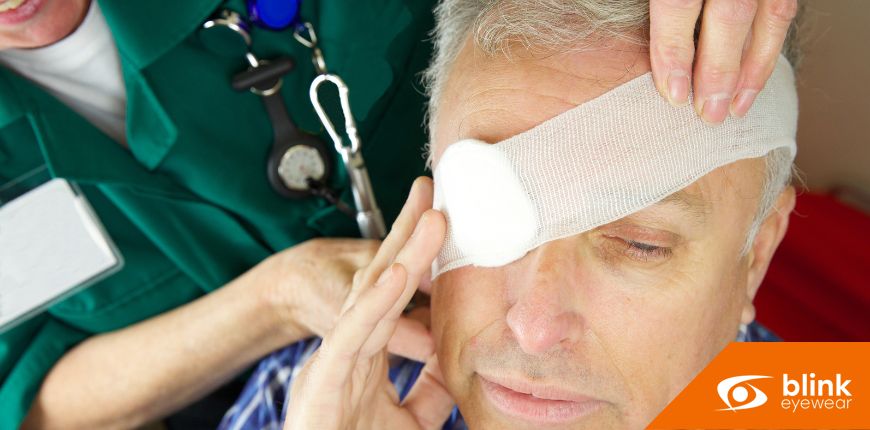
Recognizing and appropriately responding to eye emergencies is crucial for safeguarding our vision. Four prevalent issues are highlighted: chemical burns, necessitating swift and thorough flushing with water; traumatic injuries, where it's vital not to rub the affected eye and instead protect it; sudden vision loss, which could be indicative of serious conditions like retinal detachment or stroke and requires immediate medical attention; and foreign objects in the eye, where the instinctual response to rub should be avoided, and instead, rinsing or professional removal is advised. With a comprehensive understanding of these emergencies and their symptoms, one can take prompt actions, ensuring the health and functionality of their eyes.
Our eyes, often referred to as the windows to the soul, are among the most cherished organs of our body. Through them, we experience the world in its myriad colors, depths, and forms. Yet, like any other part of the body, our eyes are susceptible to sudden mishaps and emergencies. Recognizing the symptoms early and understanding how to respond can be vital in safeguarding vision and ensuring overall eye health. Let's delve deeper into some common eye emergencies, their signs, and the immediate actions one should take.
Chemical Burns
Daily, we interact with a host of chemicals, whether in the form of cleaning agents, cosmetics, or even gardening products. But what happens when these accidentally come into contact with our eyes? Chemical burns can be agonizing and potentially damaging. Symptoms often encompass an intense burning sensation, redness, blurred vision, and profuse tearing.
Immediate action is paramount. If you or someone around you suffers from a chemical splash in the eyes, initiate prompt flushing with copious amounts of clean water. Ideally, use an eyewash station if available, or position the head under a tap, ensuring water flows across the eye, rinsing away the chemical. Continue this for at least 15 minutes. Once done, it is imperative to seek medical guidance, even if the pain subsides. Some chemicals can have delayed reactions or long-term effects that need professional attention.
Traumatic Injuries
It's a casual day at the park, and suddenly a rogue baseball finds its way towards you, or perhaps a misjudged movement leads to a child's toy impacting the eye. Physical trauma can range from mild to severe, with symptoms presenting as pain, blurred vision, potential bleeding, or even a visibly deformed eye.
In such situations, it's essential not to rub or touch the eye. Rubbing can exacerbate the injury or introduce infections. Instead, gently shield the eye using a protective cover like a paper cup, ensuring no pressure is applied directly. This not only protects the eye from further injury but also prevents foreign particles from entering. As with all eye emergencies, reach out to a medical professional to ensure there aren't underlying issues or potential complications.
Sudden Loss of Vision
Imagine, in a fleeting moment, everything turns dark, or perhaps a shadowy curtain descends over your sight. This unnerving experience can be attributed to conditions like retinal detachment, occlusions, or even a stroke. Such instances might also be accompanied by peripheral signs like floaters or flashing lights.
Such dramatic symptoms warrant an immediate response. Refrain from activities that could be hazardous, such as driving. Proceed to consult with an eye specialist or visit an emergency room at once. The faster one acts, the higher the chances of salvaging vision and mitigating potential permanent damage.
Foreign Objects
A gust of wind, a crafting project gone awry, or merely walking on a sandy beach can introduce foreign objects into our eyes. While our immediate response might be to rub the eye vigorously, this can be detrimental. Symptoms of such incidents include a persistent gritty sensation, redness, watering, and pain.
Firstly, try to blink several times, allowing the eye's natural mechanisms to expel the intruder. If unsuccessful, consider rinsing the eye gently with clean water or a saline solution. If discomfort persists or the object remains lodged, resist the urge to extract it manually. Instead, visit an eye specialist who can provide a safe and sterile removal process, reducing the risk of infection or abrasions.
Our eyes, while marvelously intricate, are vulnerable to a range of emergencies. Familiarizing ourselves with the symptoms and appropriate immediate actions is a proactive step in eye care. Nonetheless, remember always to consult with healthcare professionals when faced with eye-related dilemmas. It is through such informed decisions and prompt actions that we can ensure our eyes remain healthy, allowing us to cherish the world's visual splendors for years to come.